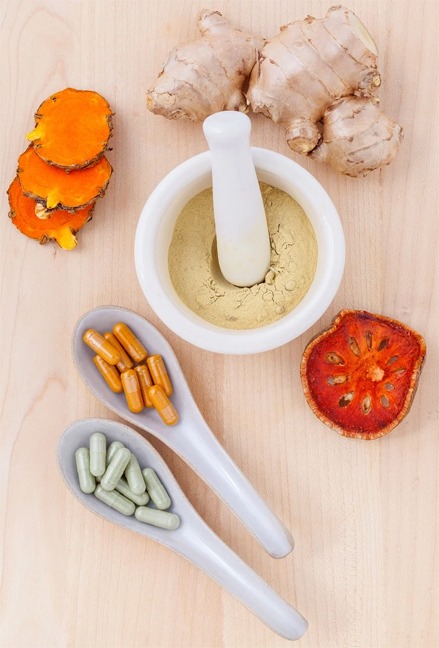Herbal medicine treatment is a natural and time-tested approach to healing that uses plant-based remedies to support the body’s health and restore balance. Rooted in ancient traditions from cultures around the world, herbal medicine offers a holistic alternative to conventional treatments by addressing the root cause of illness rather than just the symptoms. Whether you’re managing chronic conditions, boosting immunity, or seeking natural ways to enhance overall wellness, herbal treatments provide gentle yet effective support using the power of nature.
Herbal Medicine Treatments
 You’ve probably heard people talking about taking herbs to help aspects of their health: ginko to boost memory, flaxseed to prevent high cholesterol, or Echinacea to prevent colds, for example. And you may have asked yourself: Do these herbal remedies really work?
You’ve probably heard people talking about taking herbs to help aspects of their health: ginko to boost memory, flaxseed to prevent high cholesterol, or Echinacea to prevent colds, for example. And you may have asked yourself: Do these herbal remedies really work?
On the one hand, it’s true that certain herbs can be highly effective in addressing certain ailments. On the other hand, it’s usually not as simple as picking up an “herbal supplement” from your local drug store.
Herbal medicine is an integral and highly complex element of Traditional Chinese Medicine. It has been used for thousands of years to prevent and treat a wide range of different conditions and ailments. And to be truly effective, it requires a prescription developed just for you by a licensed and experienced herbalist.
What is Chinese Herbal Medicine?
Like acupuncture, herbal medicine is premised on the belief that a body that is out of balance is more susceptible to pathogens and injury, and cannot self-heal effectively. Your unique herbal medicine formulation is designed to help bring your body back into balance and boost its ability to fight pathogens and heal itself from illness and injury.
The key to the effectiveness of herbal medicine lies in the properties of each herb and how they interact synergistically within a unique formula to address your specific imbalances. Most formulations contain four or more distinct plant-based ingredients, including leaves, flowers, bark, roots, and seeds. Your specific herbal medicine formula may be in the form of tea, powder, pills, tinctures, syrups, or topical ointment.
When is Herbal Medicine Appropriate?
By helping to re-establish your body’s natural balance—or homeostasis—Chinese Herbal Medicine can be highly effective in helping the body cope with:
- Fatigue and sleep issues
- Cold and flu symptoms
- Breathing
- Digestion
- Autoimmune disorders
- Pain management
- Mental and emotional health, including stress, anxiety, and depression
- Menstrual concerns
- Morning sickness
- Menopausal concerns
- Male and female fertility issues
- Assisting in recovery from side effects relating to cancer treatments
- Assisting in rehabilitation from chronic disease
Chinese herbal medicine is not a substitute for conventional diagnosis, treatment, or medications. However, Chinese herbal medicine can complement more traditional treatment options. Before beginning an herbal remedy, be sure to consult your medical provider.
How Can I Get a Prescription for an Herbal Remedy?
Herbal formulations must be prescribed by a Board certified herbalist who has extensive training in Chinese herbal medicine. At Urban Acupuncture Center, your initial consultation with our herbalist can be in-person or through our safe and secure online telehealth system.
During your consultation, which should last about an hour, your herbalist will discuss your general health, medical history, and lifestyle patterns, as well as your specific medical concerns and symptoms you are experiencing. If in-person, they may also perform several diagnostic measurements, such as pulse and heartrate.
Based on this initial assessment, our herbalist will prescribe a formula for the treatment of your specific health concerns. Through our convenient email system, you can purchase your prescription from our safe and reputable suppliers to be shipped directly to your home. Regular follow-up appointments with the herbalist will review the efficacy of the treatment and make adjustments as necessary.
Contact Urban Acupuncture Center in Columbus, OH For More Information
For more information about how acupuncture, massage therapy, electroacupuncture and other alternative healing treatments can help you, please contact the Urban Acupuncture Center Board Certified Licensed Acupuncturist’s team at Indianola Ave, Columbus, Ohio (Clintonville) (614) 725-2488 or click here. Taking new patients in and around greater Columbus, Ohio.
